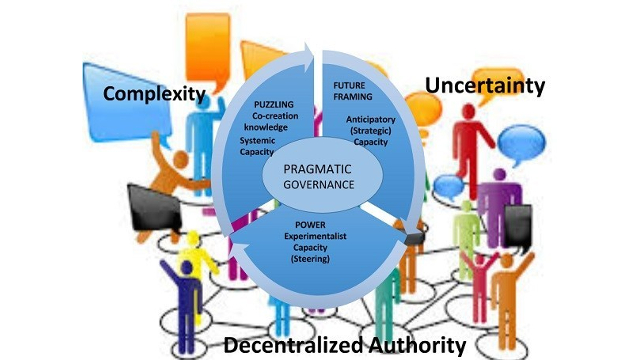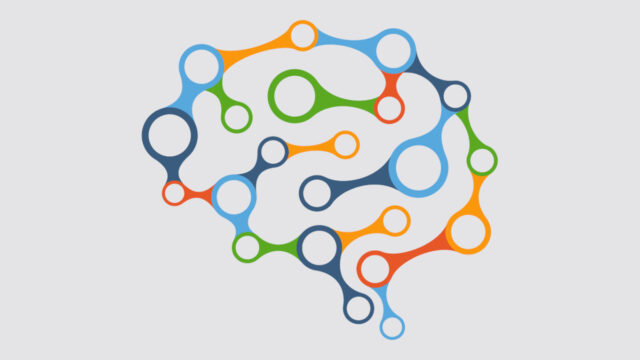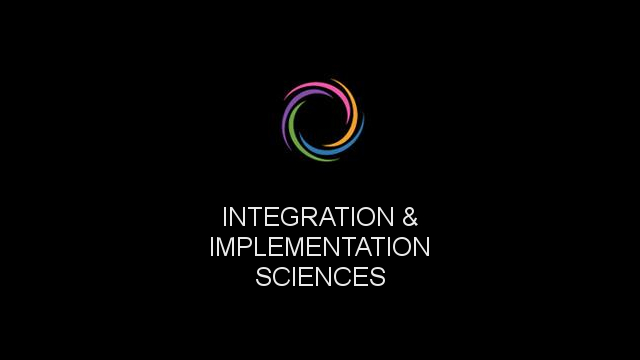
The interplay between knowledge and power
By Cristina Zurbriggen. Originally published on the Integration and Implementation Insights blog. A Spanish version of this article is also available.
Most recent approaches to tackling complex problems fail to include the political dimension. Furthermore, political science, as well as contemporary public policy and governance studies, have made few contributions to the treatment of decision-making processes as dynamically complex.
How can we develop innovative frameworks for taking the political dimension into account? How can we add to the focus on how we produce knowledge by also considering how we think about politics, accountability and social responsibility? Specifically, what is the political dimension of the process of knowledge co-creation and what are the implications of politics for participation, experimentation and collective learning?
Knowledge and information are not objective, but are contested, politicized, and pluralized. It is well known that although there is enough ‘supply’ of knowledge and long-term analysis to policy-makers, relatively little is used in policy processes.
An additional dimension is the different political epistemologies of interventions. How can we get beyond the dominant technocratic and managerial approaches? We need a more pragmatic framework and strategic orientation which can take into account large scales and long time frames, as well as complexity, uncertainty and multiple stakeholders, while also recognizing that government and non-government decision makers and actors experience limited capacity to exercise authority. They must craft or leverage consensus across contested political legitimacy to achieve social transformation.
Marsh and Smith’s “policy networks” perspective1 offers a useful way to tackle some of the complexities involved in policy making processes. It helps to explain how and why particular types of knowledge get established in policy, as well as to think about how policy processes might be opened up to more diverse forms of knowledge.
Marsh and Smith’s approach expresses the failure of public policy to deal with complex problems. It is a reaction to the traditional view of government as a top-down entity and a critique of rational models for explaining multi-actor participation in policy-making. The most powerful innovations require systems change rather than impact on part of the system or on sectorial public policy or service.
Policy networks help explain that, in most situations where knowledge and power are dispersed, synthesizing knowledge and managing unknowns is not simply about anticipating what will appear on the horizon. It is also a complex normative political activity of defining what long term societal goals are preferable, how to reach these goals, and against what costs for whom. Analyzing policy networks also cuts to the heart of key debates in social science: How important is political conflict over the distribution of power in the co-creation knowledge processes?
This approach, combined with the work of John Dewey and Elinor Ostrom, provides a framework to facilitate not only the generation of new knowledge, but also the creation of pluralist alliances, the building of a new democratic capacity and the power to drive political change.
Dewey’s ‘pragmatist perspective’ of ‘the public space’ 2 solves specific problems through what he sees as ‘co-operative inquiry’. The creation of knowledge is rooted in a collaborative process of concrete problem-solving in which participants are led to question and jointly reframe their values and understandings. Thus, the challenge for Dewey was to reconstruct a way to enable thinking and handling change, contingency, heterogeneity and unpredictability.
Ostrom coined the concepts of co-production and action arena and developed a general framework for the analysis of “social-ecological systems”, called polycentric systems.3,4
Research into dealing with complex policy problems repeatedly shows that knowledge and information cannot be seen as separate from political struggles over the definition of ambiguous societal problems, goals, and values. Co-creation of knowledge must ensure that power is central to the discussion and make the relationship between knowledge, power and vision for the future central to its analysis.
Biography
 |
Cristina Zurbriggen PhD is a professor at the Universidad de la Republica Uruguay. Her research has addressed governance and policy networks, co-creation in public policies, Innovation Labs, sustainable agriculture (meat traceability, soil erosion, water sustainability). She uses co-creation methodology and other systems methods to investigate the future of complex public issues, often working directly with government by applying innovative methods. She is a member of the Co-Creative Capacity Pursuit funded by the National Socio-Environmental Synthesis Center (SESYNC). |
Article source: The interplay between knowledge and power, republished by permission.
This article is one of a series resulting from the first meeting in April 2016 of the Co-Creative Capacity Pursuit. This pursuit is part of the theme Building Resources for Complex Action-Oriented Team Science funded by the National Socio-Environmental Synthesis Center (SESYNC).
References:
- Marsh D. and Smith, M. (2000). Understanding Policy Networks: Towards A Dialectical Approach. Political Studies, 48(1): 4-21. ↩
- Dewey, J. (1927). The Public and its Problems. Pennsylvania State University Press, 2012 (Reprinted from The Collected Works of John Dewey: The Later Works, Volume 2: 1925-1927, 1984, Southern Illinois University Press). Additional Information on Dewey is available at: www.iep.utm.edu/dewey/ ↩
- Ostrom, E. (1996). Coproduction, Synergy, and Development. World Development, 24(6): 1073-1087. ↩
- Ostrom, E. (2010). Beyond Markets and States: Polycentric Governance of Complex Economic Systems. American Economic Review, 100(3): 641–672. ↩







Interesting blog Cristina Zurbriggen. Thanks for this. I find your piece very interesting for a range of reasons. Firstly, at deeply practical level, it provides some insights into the complexity of the pragmatics of doing knowledge management. The politics of power is a primary disruptor of effective KM at so many levels, even down the miniature of the interpersonal level.
Secondly at an intellectual level, the reference to the dynamics of pragmatism that you reference goes to the challenges of reconciling the intellectual worlds of constructivism and realism. One of the most challenging books I have read about this challenge is Peter Munz’s book: Beyond Wittgenstein’s Poker: New Light on Popper and Wittgenstein.
I have in a rather unauthodox and personal way tried to find my way through these mazes going back 10 years no. Your reference to Dewey and the notion of public space reminds me of a book chapter and an article, I wrote some years ago.
The first called: Textual representations and knowledge support-systems in research intensive networks [https://www.semanticscholar.org/paper/Textual-Representations-and-Knowledge-in-Research-Vines-Hall/8514c18f86d8a0f0271d4b045371f9daebbe9bb9]. THis chapter (now in hindsight in a rather convoluted way) argues for the notion of a public knowledge space.
The second called: Cities, Human Well Being and the Environment: Conceiving National Regulatory Knowledge Systems to Facilitate Resilient Knowledge, Knowledge Based Development and Inter-Generational Knowing [https://www.semanticscholar.org/paper/Cities%2C-Human-Well-Being-and-the-Environment%3A-to-Vines-McCarthy/dacfb5f049ad6c3cc912e2b2639d8bdfe7d1f825]. THis reflection (also now in hindsight in a rather convoluted way) also argues for deeper consideration of ways to reconcile the worlds of constructivism and pragmatism.
I hope you have success in advocating your perspectives and causes.
Editor’s note: Replies to Richard’s comment can be found on the Integration and Implementation Insights blog.